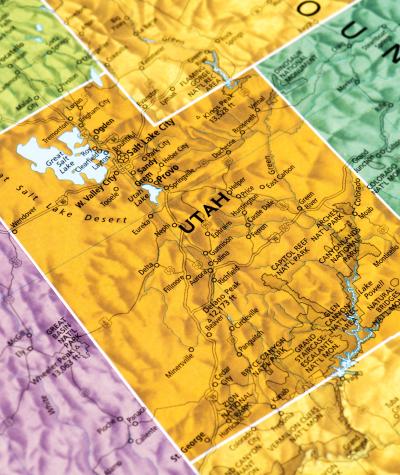Campaign Legal Center (CLC), partnered with Utah attorneys from Parr Brown Gee & Loveless and Zimmerman Booher to file a lawsuit on behalf of the League of Women Voters of Utah, Mormon Women for Ethical Government and individual voters in Salt Lake City to block Utah from violating voters’ will with its new congressional redistricting map.
The lawsuit, filed on March 17, 2022, claims that this map would constitute an extreme partisan gerrymander and dilute the voting strength of individual voters.
In 2018, Utah voters passed a bipartisan citizen initiative called Proposition 4, popularly known as Better Boundaries. Among other reforms, the initiative prohibited partisan gerrymandering and established the Utah Independent Redistricting Commission (Commission).
Independent redistricting commissions (IRC) are a voter-centric reform used to ensure voters – not partisan politicians – decide how electoral districts are drawn. These nonpartisan commissions are an important tool to ensure voters choose their politicians, instead of politicians choosing their voters.
In 2020, the Utah Legislature overruled the will of voters by repealing Proposition 4 and replacing it with S.B. 200, which rescinded the prohibition on partisan gerrymandering but allowed a watered-down commission to still participate in an advisory capacity.
Consequently, the Utah Legislature had free reign to draw congressional maps that served its own self-interests, instead of the interests of voters.
Before the Commission could finish its work, the legislature disregarded the Commission’s impartial and community-driven proposals and instead devised its own extremely gerrymandered map. The gerrymandered map locks in one-party control of Utah’s congressional delegation for the next decade while silencing voters with minority political viewpoints.
The Utah Legislature’s map, called the 2021 Congressional Plan, exemplifies how a ruling political party can skew the electoral process by “cracking” voters from the minority party into multiple congressional districts to dilute their voting power.
The 2021 Congressional Plan carves up Salt Lake County, home to Utah’s largest concentration of non-Republican voters, among all four congressional districts – reliably ensuring that there are no competitive districts in Utah’s congressional delegation for the foreseeable future.
Elections should be determined by voters, not politicians who draw maps to serve their own political interests. Utah’s courts can help ensure every vote counts and every voice is heard by blocking the implementation of the gerrymandered congressional map and reinstating Proposition 4’s critical anti-gerrymandering reforms.
